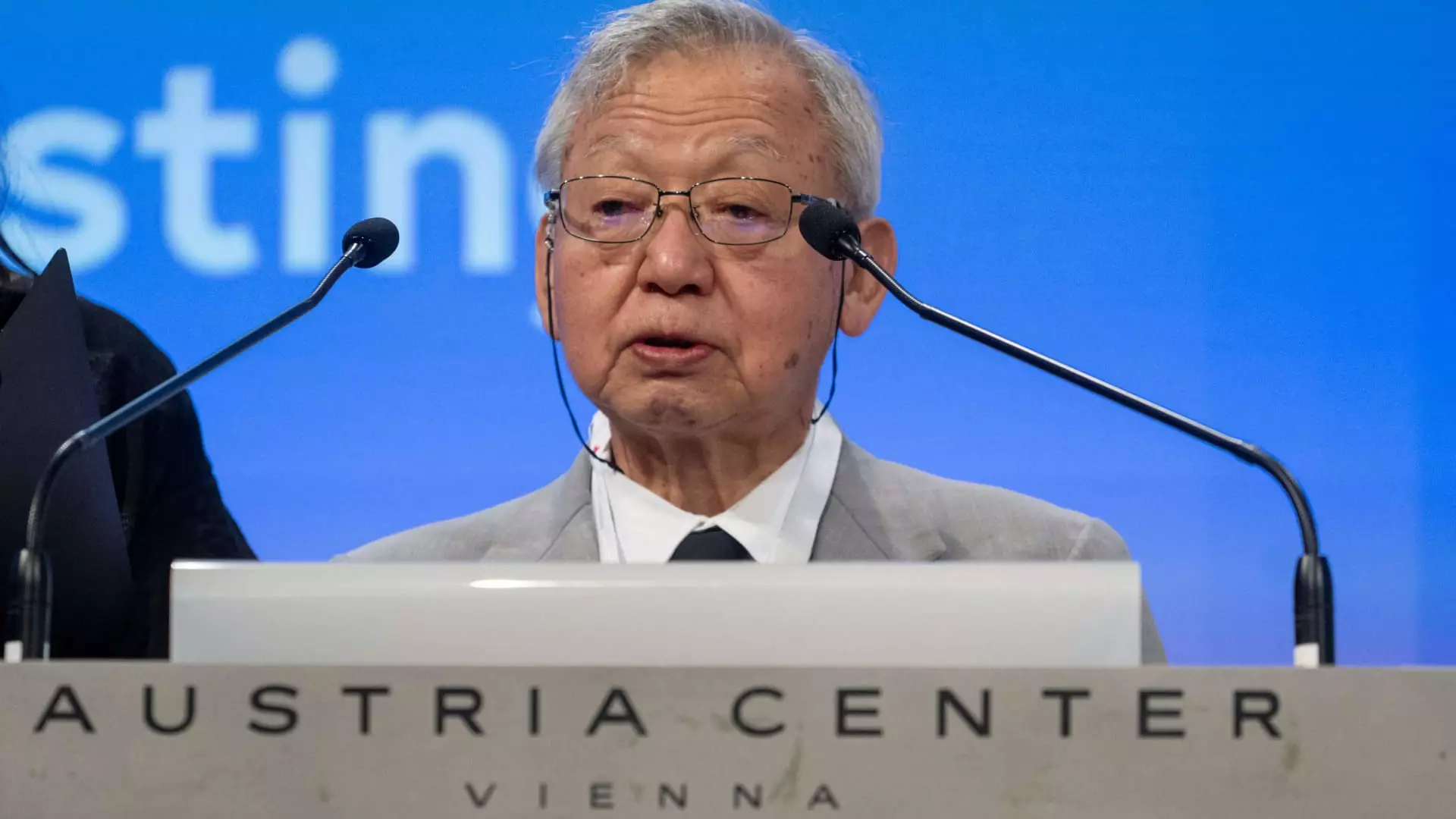The recent awarding of the Nobel Peace Prize to Nihon Hidankyo, the organization advocating for atomic bomb survivors in Japan, highlights a critical moment in the ongoing fight against nuclear proliferation. Established in 1956 by survivors of the Hiroshima and Nagasaki bombings, this grassroots movement has been pivotal in raising global awareness about the dire humanitarian consequences following nuclear attacks. At a time when the world is facing unprecedented threats from nuclear arms, Nihon Hidankyo’s work serves not only as a reminder of the past horrors but also as a clarion call for a future devoid of nuclear weapons.
The Norwegian Nobel Committee acknowledged that Nihon Hidankyo’s efforts have fostered a significant international norm stigmatizing the use of nuclear arms. This prevailing understanding, often referred to as “the nuclear taboo,” suggests that using such weapons is not only politically hazardous but morally reprehensible. The Hibakusha, whose firsthand accounts and testimonies bring gravity to the realities of nuclear war, play a crucial role in shaping this discourse. Their stories are not merely historical narratives; they are urgent warnings to the contemporary world, especially given the increasing geopolitical tensions and rhetoric surrounding nuclear capabilities.
Despite the valuable progress made in cultivating this nuclear taboo over the last eight decades, the Nobel Committee expressed concerns regarding the evolving landscape of nuclear arms. With tensions between nations surging and discussions about territorial disputes becoming heated, there is an alarming trend of diminishing respect for the taboo against nuclear weapons. As Nihon Hidankyo continues its advocacy, the organization embodies a crucial contradiction of hope and urgency, wherein the stories of the past must inform present actions to prevent future calamities.
The recognition of Nihon Hidankyo by the Nobel Committee not only honors those affected by past nuclear war tragedies but also serves to amplify their mission in the global arena. The committee’s history of spotlighting nuclear issues is evident in its past awards, including the 2017 honor given to the International Campaign to Abolish Nuclear Weapons (ICAN). Both organizations share a commitment to promoting disarmament and advocating for a world where nuclear weapons are publicly condemned and ultimately eradicated.
In recent years, human rights activists, like Iranian Narges Mohammadi, have similarly garnered attention for their struggle against oppression. While their battles are rooted in different contexts, they share a common thread of advocating for the rights and dignity of individuals in the face of violent and systemic injustices. Both Nihon Hidankyo and Mohammadi’s organizations demonstrate the global spirit of resistance—resisting not only against weapons of mass destruction but also against the marginalization and oppression of people.
The recognition of Nihon Hidankyo serves as a reminder of the pivotal role that survivor narratives play in shaping our understanding of peace and security. The journey towards a nuclear-free world requires continuous dialogue, advocacy, and remembrance of the past—a journey that Nihon Hidankyo steadfastly leads.


Leave a Reply